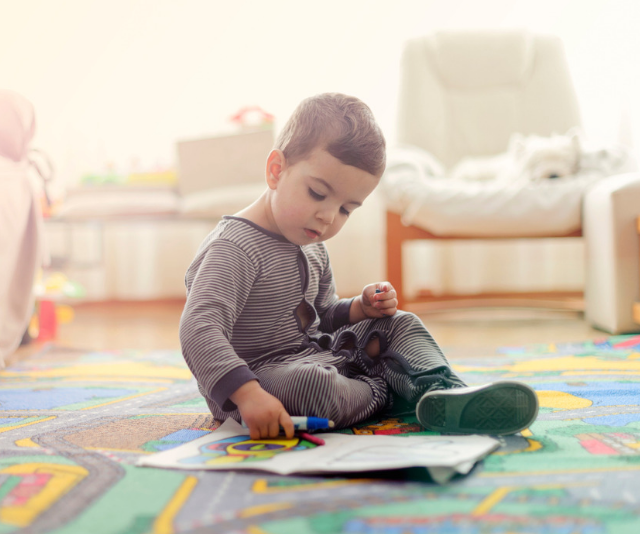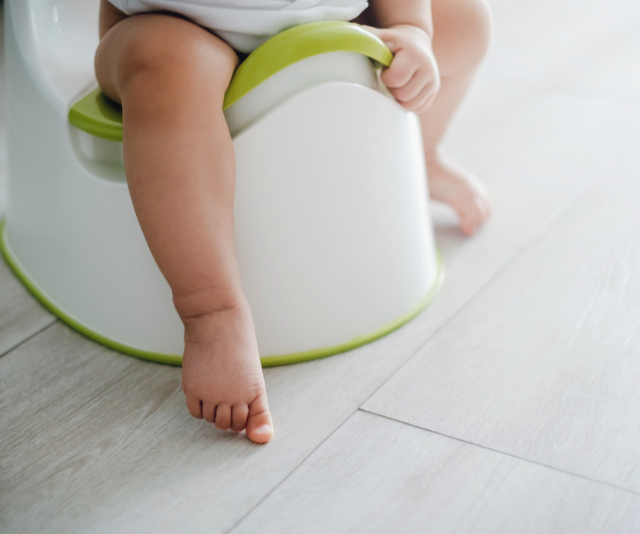Play dates with other kids will become a whole new focus this year, as your toddler moves from solo baby play, where they are totally in their own world, to being aware of and seeking out the company of other little friends.
Don’t panic if you put the kids together in the cubby house and they go off and do their own thing, completely ignoring each other. They are engaging in what’s called “parallel play” and it’s an important style of play and useful development stage.
They may not appear to be interacting, but rest assured they are super aware of what the other is doing and use this technique as a way of gradually joining in a game that’s already in motion, or dealing with shyness.
They will start to move on to cooperative games as their language and imagination skills progress.
The parallel play stage finishes when a child develops the ability to engage in sharing, interactive play and symbolic communication.

Your child liking to play alone is no reason to panic. Image: Getty.
Childcare options
Is childcare an option you are now considering, if you haven’t already?
While you may feel that your little one is best being under your close guidance at home, you may need to return to work so take heart in the fact that research has shown that quality childcare has some real life-long benefits for kids.
A 30-year study found full-time specialised childcare that includes language-focused activities to promote social, emotional and cognitive development is key to academic achievement and social competence in adulthood.
WATCH: Tips for getting ready with a toddler. Continues after video …
However, all the scientific backup in the world doesn’t change the fact that this transition can be a heart-wrenching time for both you and your toddler.
Therefore it’s important to prepare them for the transition with lots of talks, books, positive stories and visits to the centre or home, showing them you trust their new carer.
Establish a ‘childcare day’ routine such as packing the lunchbag or a special breakfast on those days, and in the beginning always physically hand your child to the carer rather than leaving them adrift in a room, no matter how happy they seem.
If they are not settling in after a few weeks, consider a different style of childcare (such as the small home environment of family daycare) or waiting a month or two – if you have that luxury – and weighing up the cost vs benefit of childcare.

.png)

.png)